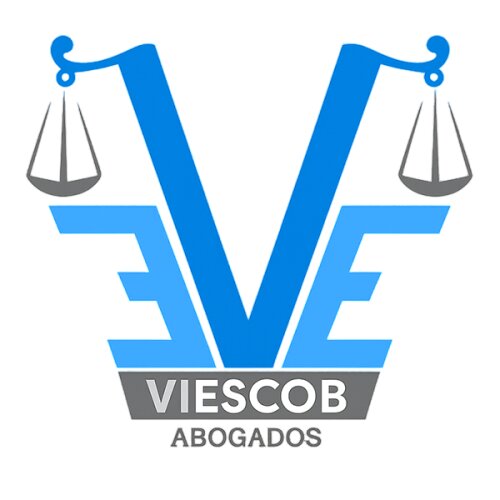Best Child Custody Lawyers in Providencia
Share your needs with us, get contacted by law firms.
Free. Takes 2 min.
Free Guide to Hiring a Family Lawyer
List of the best lawyers in Providencia, Chile
About Child Custody Law in Providencia, Chile
Child custody, known in Chile as "tuición" or "cuidado personal," refers to the legal and practical relationship between a parent and their child, including the right to make decisions about the child's well-being. In Providencia, as in the rest of Chile, custody laws are based on national legislation but are administered through local family courts. The best interests of the child are the guiding principle in determining custody arrangements. Both parents can seek custody, and the law aims to ensure that children maintain strong relationships with both parents when possible.
Why You May Need a Lawyer
Legal assistance is highly recommended in child custody matters, particularly because of the emotional complexity and life-altering consequences involved. You may need a lawyer if you are experiencing any of the following situations:
- Separation or divorce where parents cannot agree on custody terms
- Desire to modify an existing custody order
- Allegations of abuse, neglect, or unfit parenting
- Parental relocation or plans to move with the child
- One parent denying visitation or access to the child
- Concerns over child support or other related legal responsibilities
- International custody disputes or risk of parental abduction
- Cases involving grandparents or third parties seeking custody or visitation rights
A lawyer can guide you through the legal process, represent your interests in court, help negotiate agreements, and ensure that your rights and the child’s best interests are protected.
Local Laws Overview
In Providencia, the laws applicable to child custody are primarily found in Chilean Civil Code and governed by family courts specific to each municipality. Key aspects of these laws include:
- Best Interests of the Child: This principle underpins all decisions. The court prioritizes the child's physical, emotional, and developmental needs above all else.
- Types of Custody: Sole custody (cuidado personal exclusivo) is where one parent is primarily responsible, while shared custody (cuidado personal compartido) allows for joint management and shared responsibilities.
- Parental Agreements: If both parents agree, they can submit a proposed arrangement to the court for approval. If there is no agreement, the court will decide.
- Visitation Rights: The non-custodial parent usually has visitation or access rights to maintain their relationship with the child.
- Modification of Orders: Either parent can request a change to the custody order if there is a significant change in circumstances.
- Domestic Violence: Special protection measures exist for children and victims of domestic violence, which may affect custody outcomes.
Family courts in Providencia are responsible for evaluating all evidence and hearing from both parties before making custody decisions.
Frequently Asked Questions
What factors do courts consider in awarding custody?
Courts focus on the child's best interests, evaluating factors such as the child's age, each parent’s ability to provide, the child’s relationship with each parent, health considerations, and any risk of harm.
Can custody be shared between both parents?
Yes. Chilean law permits shared custody arrangements when both parents can cooperate, and it is in the child’s best interests.
Who decides custody if parents cannot agree?
If there is no agreement, the local family court in Providencia will hold hearings and make a decision based on the child’s welfare.
Can grandparents or other family members obtain custody?
Yes. In exceptional circumstances, if both parents are unable to care for the child, other family members, such as grandparents, can request custody.
What happens if the custodial parent wants to move to another city or country?
A parent wishing to relocate with the child must obtain court authorization, especially if it significantly affects the other parent’s visitation or the child’s welfare.
Is it possible to change an existing custody agreement?
Yes, if there is a substantial change in circumstances, either parent can petition the court to review and modify the arrangement.
What role does domestic violence play in custody decisions?
Evidence of domestic violence is treated with utmost seriousness. Courts may limit or deny custody and visitation to protect the child’s safety.
How is child support related to custody?
Child support and custody are handled separately by the courts, but both relate to the child’s welfare. The non-custodial parent is typically required to contribute financially.
Do children have a say in who they live with?
Depending on their age and maturity, children’s preferences may be considered by the court, but the final decision always centers on their best interests.
How long does the custody process take?
The timeline varies depending on the complexity of the case and whether parents can reach an agreement. Disputes requiring court hearings may take several months.
Additional Resources
If you need more information or assistance regarding child custody in Providencia, consider reaching out to the following:
- Family Courts of Providencia: These courts handle all child custody matters and can provide procedural information.
- Corporación de Asistencia Judicial: This public legal aid office offers free or low-cost legal advice and representation for those who qualify.
- SernamEG (Servicio Nacional de la Mujer y la Equidad de Género): They can help, especially in cases involving domestic violence or gender issues.
- Private family law attorneys: Many offer initial consultations to evaluate your case.
- Municipal Offices of Providencia: The municipality can direct you to local legal and social services that specialize in family matters.
Next Steps
If you believe you need legal advice or representation in a child custody matter in Providencia, consider the following steps:
- Gather relevant documentation such as marriage certificates, birth certificates, and any previous court orders.
- Write down the key facts and issues in your case, including your relationship with your child and the current custody arrangement.
- Contact a lawyer specializing in family law or visit the Corporación de Asistencia Judicial office for initial guidance.
- Schedule a consultation to discuss your options, rights, and obligations.
- If court proceedings are necessary, ensure you have prepared your case fully, with the lawyer’s support, and attend all hearings as required.
Seeking professional legal assistance ensures your rights and your child’s best interests are well represented within the legal system of Providencia, Chile.
Lawzana helps you find the best lawyers and law firms in Providencia through a curated and pre-screened list of qualified legal professionals. Our platform offers rankings and detailed profiles of attorneys and law firms, allowing you to compare based on practice areas, including Child Custody, experience, and client feedback.
Each profile includes a description of the firm's areas of practice, client reviews, team members and partners, year of establishment, spoken languages, office locations, contact information, social media presence, and any published articles or resources. Most firms on our platform speak English and are experienced in both local and international legal matters.
Get a quote from top-rated law firms in Providencia, Chile — quickly, securely, and without unnecessary hassle.
Disclaimer:
The information provided on this page is for general informational purposes only and does not constitute legal advice. While we strive to ensure the accuracy and relevance of the content, legal information may change over time, and interpretations of the law can vary. You should always consult with a qualified legal professional for advice specific to your situation.
We disclaim all liability for actions taken or not taken based on the content of this page. If you believe any information is incorrect or outdated, please contact us, and we will review and update it where appropriate.











